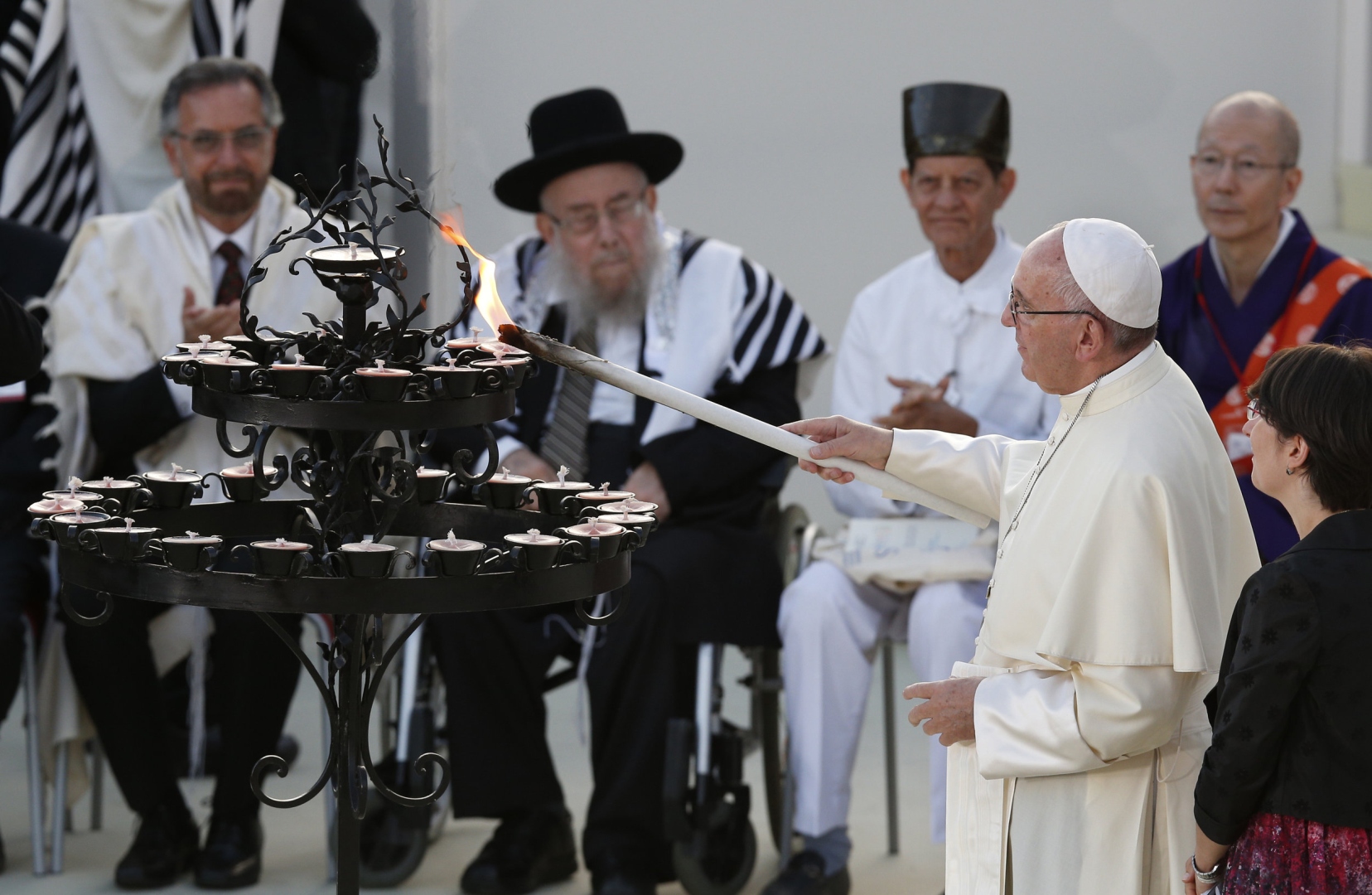Rigid control needs to give way to wise compassion. Internal reform can make religion morally credible

Religion has been in the news much of the past week. And how! Atheists praising the Pope. Governments which otherwise question secularism mourning him (except Israel). Businesses, from Amul downwards, getting their mileage out of the issue. Every leader, including Trump, showing they have a heart by mourning Pope Francis. Even the business channels are offering a blow-by-blow video account, even though voting for the new Pope is yet to take place.
But beyond all this, there's one hard reality that hits home strongly. Religion is still too important to leave it in the hands of bigots (or vested interests) alone. It needs reform, improvement and change. That is the way forward.
The only thing that everyone can't agree on is: change in what direction and how? Any religion, every religion, needs to keep up with the times. The times are changing. But our mindsets have not. The biggest challenges in the years ahead seems to be the angst that religions face, while struggling with the changes in the world around them. These are many, and serious.
All religions have had their fair share of intolerance. So have 'secular' and non-religious ideologies. When it comes to the latter, take a look at the Soviets, Communist China or Hitler's Germany. As far as religions go, a quick look at history will underline this reality. Even if we might not want to accept the truth.
Today, some religions seem willing to change, while others just want to hold on. This has been true at other points of history too. It seems as if different religions have taken turns at being intolerant and inflexible. To avoid any criticism they might face, some instead indulge in fighting with other religions, making it seem as if it were a competitive battle. Or simply critiquing other religions and faiths while not wanting to undertake any change internally.
One of the reason why so many persons had so many things to say about Pope Francis was perhaps his initiative to change the Church, to meet changing times. From the outside, and for a layman, it's hard to understand how much of this change was real. After all, we believe what we read. It is possible to create myths about men in power.
Some searching does indicate the level of his changes, and the dedication with which he carried this out. Of course, there will always be scope for wanting more, bold, and far-reaching reform.
The jury says the late Pope was strong in bringing about cultural and pastoral change. Slow on structural and governance change -- which is still seen as "underway". And very cautious, mostly indirect on doctrinal change.
But the list is impressive. The tone and pastoral practice within the Church has changed. How long that lasts is yet to be seen. For instance, tone and emphasis got place over doctrine. "Who am I to judge?" was Francis' famous 2013 comment about gay people. It signalled a less condemnatory approach, though the Church doctrine on homosexuality remained unchanged.
Instead of strict moral policing, Francis' tenure saw the Church move on to an emphasis on compassion and openness. He highlighted the need to accompany people in their struggles.
Reforms in approaches to family life and marriage came in his time. Amoris Laetitia (The Joy of Love, 2016) was a cautious way for divorced and remarried Catholics to receive Communion, something earlier strongly forbidden. Responsibility for this was placed in the hands of local bishops, giving some flexibility.
Likewise, his synodality push and Church governance saw the people emphasise listening to laypeople, women and marginalised groups. Something long overdue. In terms of handling sexual abuse, he issued new Church laws making bishops accountable for dealing with abuse. Some felt this was unevenly enforced. Francis admitted the Church's failures more openly than did his predecessors.
"Vos estis lux mundi" ("You are the light of the world") was the quote from Matthew (5:14) that Francis used as title for his apostolic letter and set forth new procedures for combating sexual abuse within the Church.
He framed environmental protection as a moral and spiritual duty in Laudato Si' (Praise Be To You, 2015). His interreligious approach took things ahead too, including his outreach to Muslims in an increasingly Islamophobic world.
Francis allowed women to be installed as lectors and acolytes (ministries assisting in the liturgy) in Spiritus Domini (Spirit of the Lord, 2021). But he resisted calls for women's ordination to priesthood. His blunt critique of unfettered capitalism ("the dung of the devil") challenges a Church which has often sided with the powerful.
It is time for religions to change. Rigid control needs to give way to wise compassion. Justice issues need to be taken up seriously. Internal reform can make religion morally credible. Younger generations need to be reached out to in real and transformative ways. People like the outgoing Pope (and some other religious leaders too) recognised this as the need of the hour.